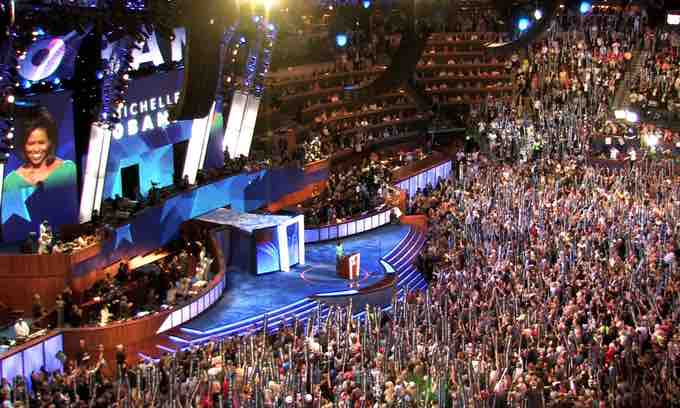Political parties in the United States that will be fielding nominees in an upcoming U.S. presidential election are responsible for hosting presidential nominating conventions. The formal purpose of the conventions is to select the party's candidates for president and vice president. The conventions develop a statement of party principles and goals known as a party platform. Another formal purpose of presidential nominating conventions is to adopt the rules for a given party's activities, such as the presidential nominating process for the following election cycle.
Nominating conventions also carry significance beyond their formal purposes. Conventions are an opportunity to rally political supporters and reward the party faithful by allowing them to participate asdelegates. Due to the national media presence surrounding presidential nominating conventions, they are also excellent tools to showcase a given party's leaders and policies to prospective voters.
The two major political parties in the U.S. host the quadrennial Democratic National Convention and Republican National Convention to determine their respective presidential and vice presidential candidates. The Democratic National Committee administers the Democratic National Convention while the Republican National Committee administers the Republican National Convention. In recent years, candidates from the Democratic and Republican parties have been known in advance of these conventions. Subsequently, the more modern focus of the Democratic and Republican National Conventions has been to unify each respective party by having delegates vote on issues that the nominee can incorporate into their presidential campaign. The conventions also generate positive publicity towards each respective party.

Democratic National Convention
Presidential nominating conventions, like the Democratic National Convention, host influential speakers to increase party unity.
Some minor political parties in the U.S. also utilize conventions to select their presidential candidates. Examples of such minor parties include the Green Party, Socialist Party USA, Libertarian Party, Constitution Party, and Reform Party USA.